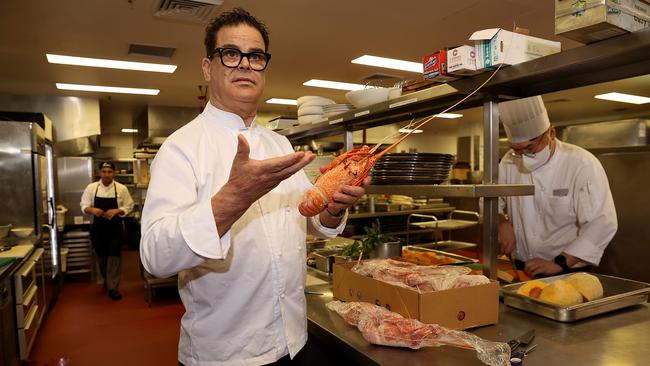Seafood origin labels come with a catch
Australian cafes and restaurants will be forced to label imported seafood on their menus under new laws being crafted by the Albanese government.

Cafes and restaurants will be forced to label imported seafood on their menus under new laws being crafted by the Albanese government.
Federal Agriculture Minister Murray Watt this month told a seafood industry conference the government would extend country-of-origin labelling, which already applies to retail, to the hospitality sector.
Only the Northern Territory has existing country-of-origin labelling legislation in place and previous attempts to have similar laws introduced in other jurisdictions have failed, including an attempt by NSW Labor in 2018. “As traceability and provenance become more important environmental and consumer issues, expanding existing country-of-origin labelling practices to the food service sector is increasingly important,” Mr Watt said in his speech to the Seafood Directions Conference in Brisbane.
“We are committed to working with the seafood and hospitality sectors to implement mandatory country-of-origin labelling. This move will provide consumers with clear and accurate information to inform their choices.”
Proponents say the labelling would increase demand for Australian seafood products and help build the country’s farmed and wild-catch seafood sector. They argue that up to 70 per cent of domestically eaten seafood is imported and Australian consumers are often unaware the seafood they are eating has come from overseas.
The Australian Barramundi Farmers’ Association wants to double its production by 2025 to $200m and has argued that labelling laws could induce the necessary demand. The hospitality industry says the legislation would lead to burdensome red tape and extra costs for businesses and that the domestic industry cannot meet demand for seafood.
Melbourne-based chef Pierre Khodja, who works as executive sous for restaurant group Lucas, said the proposed laws would mean costly daily menu changes for businesses that source their produce from a variety of providers. “We try to work with Australian products but sometimes we can’t get it,” he said.
“If something comes from Asia or overseas, we tell the customer.
“All of our waiters are told where our seafood comes from so they can tell the customer if the customer asks.”
Restaurant and Catering Industry Association chief executive officer Belinda Clarke said further red tape would compound issues facing the sector since the Covid pandemic, including the rising cost of business, inflation and staff shortages. “We’ve seen report after report saying that the benefits of a country-of-origin labelling scheme for seafood do not outweigh the costs and we just don’t think it passes the pub test to make concessions so the big end of town can make more money while small mum-and-dad fish shop operators go backwards,” she said.
“Due to the nature of the seafood industry, today’s catch might not be tomorrow’s and to have small businesses constantly re-printing menus to stay compliant not only presents a huge cost for operators, but it’s an added stress to running a business that we don’t think is necessary.”
Similar legislation proposed by Katter’s Australian Party in the Queensland parliament is on the verge of being voted down by the Palaszczuk government, but has the backing of the state Liberal National Party.




To join the conversation, please log in. Don't have an account? Register
Join the conversation, you are commenting as Logout